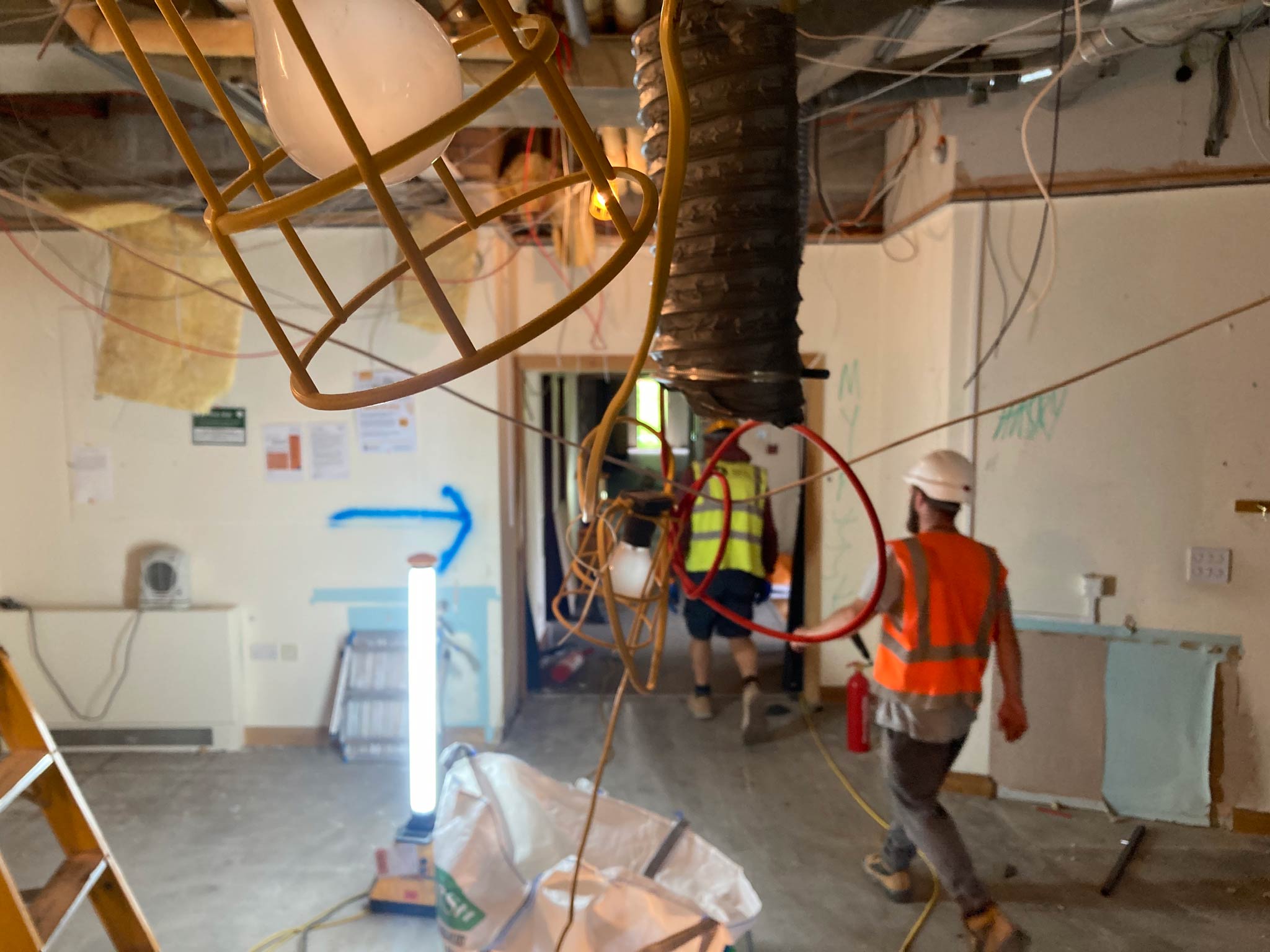In the dynamic landscape of construction and property development in Devon & Cornwall, and the UK as a whole, we are often asked what the term “soft strip demolition” means and what exactly does it entail, and when is it employed?
Soft strip demolition refers to the systematic removal of non-load-bearing elements within a structure, leaving the primary structural components intact. This meticulous approach involves dismantling fixtures, fittings, partitions, and other interior elements, while preserving the building’s essential framework. Unlike ‘mechanical’ demolition, which involves the complete levelling of a structure, soft strip demolition is a more selective and targeted process.
When Is Soft Strip Demolition Used?
Renovation and Refurbishment Projects
DSW frequently carry-out Soft strip demolition in renovation and refurbishment projects throughout Cornwall & Devon. Whether it’s transforming an outdated office space into modern residential homes or revitalising a historic building for commercial use, soft strip demolition allows developers to prepare the structure for renovation while preserving its structural integrity.
Adaptive Reuse Initiatives
In line with sustainability goals and conservation efforts, soft strip demolition plays a crucial role in adaptive reuse initiatives. By carefully removing interior elements and salvaging materials, developers can repurpose existing buildings for alternative uses, such as converting industrial warehouses into vibrant mixed-use developments or transforming disused factories into cultural hubs.
Retail and Commercial Redevelopment
Soft strip demolition is also integral to retail and commercial redevelopment projects. When businesses undergo rebranding or undergo changes in their operational requirements, soft strip demolition enables them to adapt their premises accordingly. From reconfiguring retail spaces to accommodating new office layouts, this process facilitates flexible and efficient transformations.
Key Considerations and Benefits
- Minimisation of Disruption: Soft strip demolition minimises disruption to neighbouring properties and mitigates the environmental impact associated with mechanical demolition methods.
- Compliance with Regulations: By adhering to stringent health and safety regulations and environmental guidelines, soft strip demolition ensures the responsible and sustainable management of construction waste.
- Preservation of Heritage Assets: In heritage-sensitive environments, soft strip demolition allows for the preservation of architectural features and historical significance while preparing buildings for adaptive reuse and restoration.
- Optimisation of Resources: Soft strip demolition maximises resource efficiency by salvaging reusable materials and reducing the need for new construction materials, thereby promoting circular economy principles.
Conclusion
Soft strip demolition stands as a testament to the evolving practices within the construction industry, emphasising the importance of precision, sustainability, and adaptability in modern development projects. As the demand for innovative and responsible construction practices continues to grow in the UK, soft strip demolition continues to play an increasingly vital role in shaping the built environment for generations to come.
For more information on soft strip demolition and its applications in the UK, you can explore resources provided by the leading demolition industry organisation, The National Federation of Demolition Contractors (NFDC).
DSW Group are Cornwall’s only member of the NFDC.


